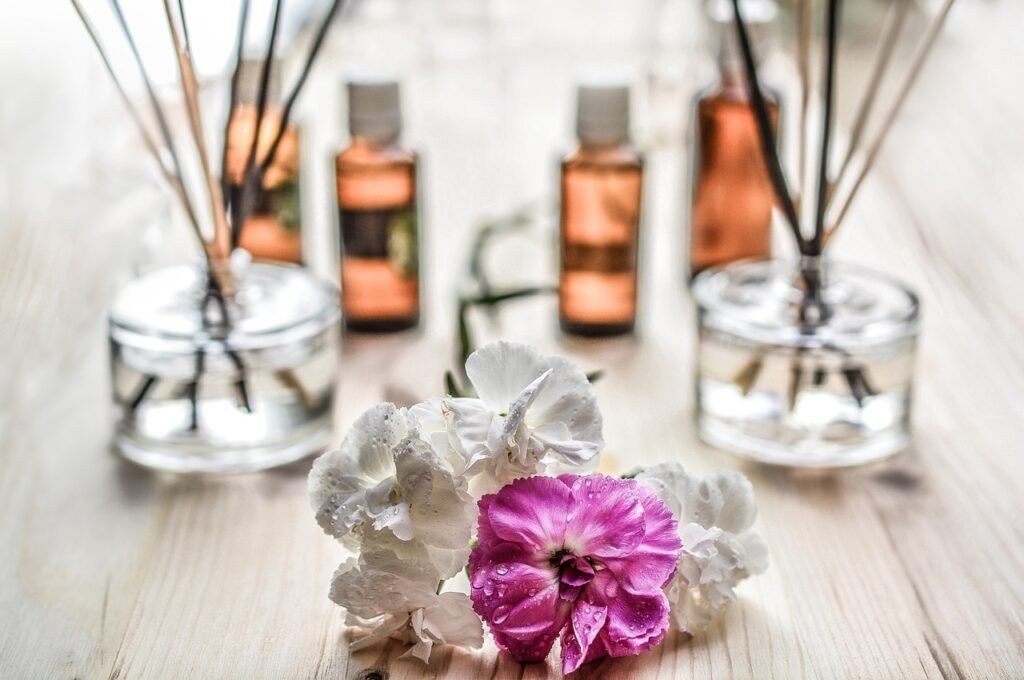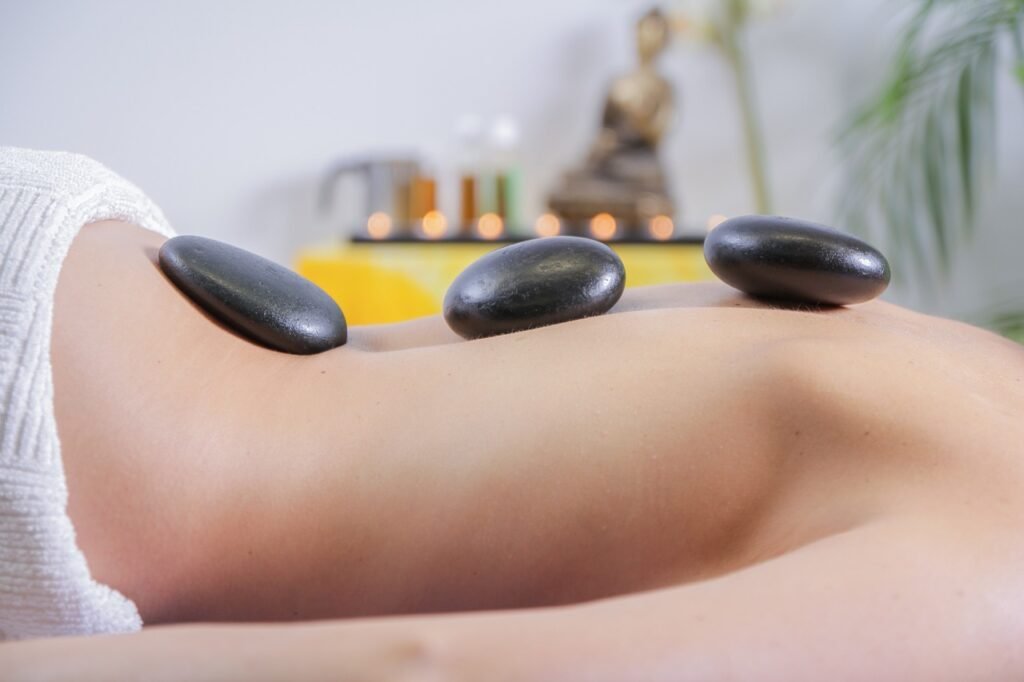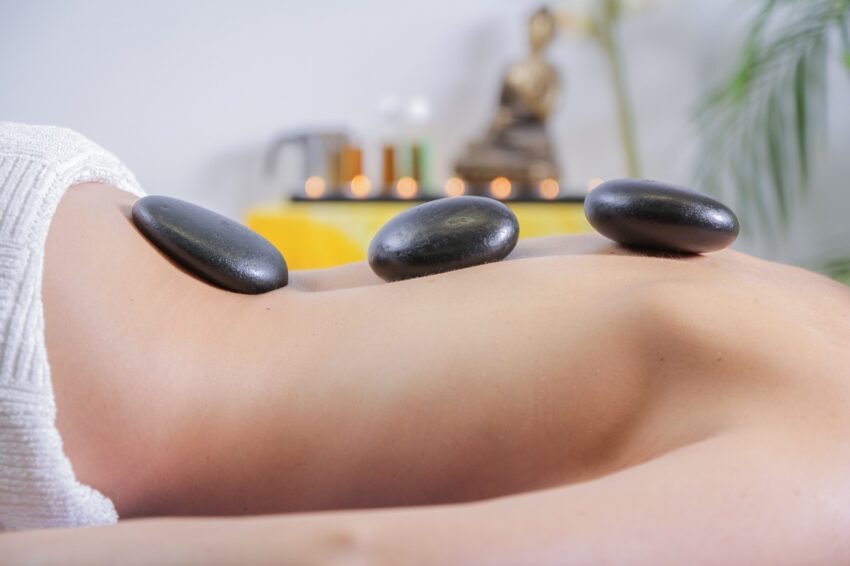Have you ever wondered if there are alternative treatments for skin conditions? Many individuals struggle with various skin issues, from acne to eczema, and conventional treatments may not always provide the desired results. In this article, we will explore the possibility of alternative treatments for skin conditions and delve into natural remedies that could potentially alleviate your skin concerns. Whether you’re looking for a more holistic approach or are simply curious about alternative options, read on to discover potentially effective solutions for your skin ailments.

Acupuncture
How Does Acupuncture Work?
Acupuncture is an ancient practice rooted in Traditional Chinese Medicine. It involves the insertion of thin needles into specific points on the body to stimulate and balance the flow of energy, known as Qi (pronounced “chee”). According to Traditional Chinese Medicine, when Qi becomes blocked or imbalanced, it can lead to various health conditions, including skin problems. Acupuncture aims to restore the balance and harmony of Qi, promoting overall well-being and health.
Effectiveness in Treating Skin Conditions
Acupuncture has shown promise in treating various skin conditions, including acne, eczema, psoriasis, and dermatitis. It works by stimulating the body’s natural healing responses, enhancing blood circulation, reducing inflammation, and regulating the immune system’s response. By targeting the root cause of skin conditions, acupuncture can help alleviate symptoms and promote long-term healing.
Types of Skin Conditions Acupuncture Can Treat
Acupuncture can be beneficial for a wide range of skin conditions, such as:
- Acne: Acupuncture can help regulate hormones, reduce inflammation, and promote faster healing of acne breakouts.
- Eczema: By balancing the immune system and reducing inflammation, acupuncture can provide relief from the itching, redness, and flakiness associated with eczema.
- Psoriasis: Acupuncture can help manage the symptoms of psoriasis by regulating immune responses and reducing skin inflammation.
- Dermatitis: Acupuncture can help alleviate itching, redness, and swelling associated with various forms of dermatitis.
Potential Benefits of Acupuncture for Skin Conditions
Acupuncture offers numerous potential benefits for individuals seeking alternative treatments for their skin conditions. Some of these benefits include:
- Natural and holistic approach: Acupuncture is a natural and holistic treatment that focuses on addressing the underlying causes of skin conditions rather than simply managing symptoms.
- Few side effects: Compared to traditional medications, acupuncture poses minimal risks of side effects or adverse reactions.
- Long-term relief: By addressing the root cause of skin conditions, acupuncture can provide long-lasting relief and promote overall skin health.
- Improved overall well-being: Acupuncture is known to have a positive impact on individuals’ overall well-being by reducing stress, improving sleep, and boosting energy levels.
How Many Sessions Are Required?
The number of acupuncture sessions required for treating skin conditions can vary depending on the severity and duration of the condition. Typically, a course of treatment involves multiple sessions scheduled over several weeks or months. During the initial consultation, an experienced acupuncturist will assess your specific condition and develop a personalized treatment plan tailored to your needs. They will also determine the frequency and duration of the sessions based on your condition’s response to treatment.
Safety and Side Effects of Acupuncture
When performed by a qualified and experienced practitioner, acupuncture is generally considered safe. The risk of complications or side effects is minimal. However, it’s essential to ensure that you seek treatment from a licensed acupuncturist who follows proper hygiene and sterilization practices. Some individuals may experience mild side effects such as soreness at the needle insertion points, temporary bruising, or fainting. It’s crucial to communicate any concerns or discomfort with your acupuncturist during the treatment session. Overall, acupuncture is a safe and well-tolerated alternative treatment option for various skin conditions.
Herbal Remedies
Overview of Herbal Remedies
Herbal remedies have been used for centuries in various cultures to treat various health conditions, including skin problems. These remedies involve using plant-based substances, such as leaves, flowers, roots, or bark, to create formulations and infusions for medicinal purposes. Herbal remedies work by harnessing the beneficial properties and compounds found in plants, which can have anti-inflammatory, anti-microbial, and skin-soothing effects.
Commonly Used Herbal Remedies for Skin Conditions
Several herbal remedies are commonly used for treating skin conditions. Some of these include:
- Aloe Vera: Known for its soothing and moisturizing properties, aloe vera is often used to relieve itching and inflammation associated with conditions like eczema and psoriasis.
- Chamomile: Chamomile is known for its anti-inflammatory and calming effects and can be used topically or consumed as a tea to soothe irritated skin.
- Calendula: Calendula has antimicrobial and anti-inflammatory properties, making it useful in soothing and healing various skin conditions, including wounds and dermatitis.
- Tea Tree Oil: Tea tree oil has natural antimicrobial properties and can be used topically to combat acne, fungal infections, and other skin problems.
- Turmeric: With its anti-inflammatory and antioxidant properties, turmeric can help reduce redness, inflammation, and pain associated with skin conditions like psoriasis and acne.
Effectiveness of Herbal Remedies in Treating Skin Conditions
Although research on herbal remedies’ effectiveness is limited and varies depending on the specific condition, some studies suggest that certain herbal remedies may provide relief and improvement in skin conditions. For example, aloe vera has been found to reduce the severity of psoriasis symptoms, while chamomile extract has shown positive effects in reducing eczema symptoms. However, it’s important to note that individual responses to herbal remedies can vary, and more research is needed to establish their efficacy definitively.
Precautions and Interactions of Herbal Remedies
While herbal remedies can be beneficial, it’s important to exercise caution and seek guidance when using them for treating skin conditions. Here are a few precautions to keep in mind:
- Consult with a healthcare professional or herbalist before using any herbal remedies, especially if you’re currently taking any medications or have underlying health conditions.
- Allergies: Some individuals may be allergic to specific herbs or botanical ingredients. It’s essential to perform a patch test before using any new herbal remedy.
- Quality and Safety: Ensure that you purchase herbal remedies from reputable sources to ensure quality and safety.
- Dosage and Usage: Follow the recommended dosage and usage instructions provided with herbal remedies, as excessive or improper use can lead to adverse effects.
Consulting with an Herbalist
If you’re considering using herbal remedies for your skin condition, it’s advisable to seek guidance from a qualified herbalist or healthcare professional who specializes in herbal medicine. They can provide personalized recommendations, help determine the most suitable herbal remedies for your specific condition, and guide you on proper usage and dosage. Consulting with an herbalist will ensure that you receive safe and effective treatment tailored to your individual needs.
Therapeutic Diet
Importance of Diet in Skin Health
Your diet plays a crucial role in maintaining overall skin health. Certain foods contain vitamins, minerals, and antioxidants that can support skin healing, reduce inflammation, and enhance its overall appearance. A therapeutic diet focuses on incorporating nutrient-rich foods while minimizing or avoiding those that may exacerbate skin conditions.
Foods to Include in a Therapeutic Diet
When following a therapeutic diet for skin conditions, consider including the following skin-friendly foods:
- Omega-3 Fatty Acids: Found in fatty fish like salmon, mackerel, and sardines, omega-3 fatty acids help reduce inflammation and promote healthy skin.
- Fruits and Vegetables: These are rich in antioxidants, vitamins, and minerals that support skin health. Include a variety of colorful fruits and vegetables such as berries, leafy greens, carrots, and sweet potatoes.
- Probiotics: Foods like yogurt, kefir, and sauerkraut contain beneficial bacteria that can help balance the gut microbiome, which is linked to skin health.
- Nuts and Seeds: Almonds, walnuts, flaxseeds, and chia seeds are good sources of essential fatty acids and antioxidants, which can improve skin elasticity and texture.
- Whole Grains: Opt for whole grains like quinoa, brown rice, and oats, which provide fiber, vitamins, and minerals necessary for healthy skin.
Foods to Avoid for Skin Conditions
While it’s important to include skin-healthy foods in your diet, there are also foods that you may want to avoid or limit if you have skin conditions:
- Processed Foods: Highly processed foods, such as fast food, sugary snacks, and refined grains, are often low in nutrients and can contribute to inflammation and worsen skin conditions.
- High Glycemic Index Foods: Foods that quickly raise blood sugar levels, like white bread, sugary drinks, and processed snacks, can trigger inflammation and acne breakouts.
- Dairy Products: Some individuals may find that reducing or eliminating dairy products from their diet can improve skin conditions like acne.
- Gluten: For individuals with gluten sensitivity or celiac disease, avoiding gluten-containing grains like wheat, barley, and rye may alleviate skin inflammation and improve overall health.
Effectiveness of Therapeutic Diet for Skin Conditions
A therapeutic diet can potentially have a positive impact on various skin conditions. Although research specifically examining the effectiveness of dietary changes for skin conditions is limited, certain studies suggest that dietary modifications, like reducing dairy and high glycemic index foods, can improve acne symptoms. Additionally, consuming a nutrient-rich diet may support overall skin health and potentially aid in reducing inflammation and promoting skin healing.
Consulting with a Nutritionist
To develop a personalized therapeutic diet plan that addresses your specific skin condition and individual needs, consulting with a nutritionist or registered dietitian is recommended. These professionals can evaluate your dietary habits, provide guidance on incorporating skin-healthy foods, and suggest appropriate modifications to support your skin’s well-being. They can also help ensure that your therapeutic diet is balanced and nutritionally adequate.
Aromatherapy
Introduction to Aromatherapy
Aromatherapy is a holistic healing practice that utilizes the aromas and therapeutic properties of essential oils derived from plants to promote physical, emotional, and mental well-being. Essential oils are highly concentrated plant extracts that can be used in various ways, including inhalation, topical application, or diffusion. These oils are believed to have distinct properties that can benefit the body and mind, including their potential effects on different skin conditions.
Essential Oils for Skin Conditions
Several essential oils have been traditionally used in aromatherapy for their potential benefits in addressing skin conditions. Some commonly used essential oils for skin health include:
- Lavender: Lavender essential oil is known for its calming and soothing properties. It can help reduce inflammation, soothe irritated skin, and promote skin healing.
- Tea Tree: Tea tree essential oil has antimicrobial properties, making it useful for treating acne and fungal infections of the skin.
- Chamomile: Chamomile essential oil has anti-inflammatory properties and can help soothe redness, irritation, and itchiness associated with various skin conditions.
- Rosehip: Rosehip oil is rich in vitamins A, C, and E, as well as essential fatty acids. It can help nourish the skin, improve its texture, and promote a more youthful appearance.
- Frankincense: Frankincense essential oil has skin rejuvenating properties and can help reduce the appearance of scars and fine lines.
Methods of Using Essential Oils
There are various methods for using essential oils in aromatherapy for skin conditions. Here are a few common methods:
- Inhalation: Add a few drops of essential oil to a diffuser or inhale directly from the bottle to enjoy the aromatic benefits.
- Topical Application: Dilute essential oils with a carrier oil, such as coconut oil or jojoba oil, and gently massage onto the skin.
- Bath: Add a few drops of essential oil to a warm bath to enjoy the therapeutic effects and promote overall skin relaxation.
Effectiveness of Aromatherapy for Skin Conditions
While personal experiences with aromatherapy may vary, some individuals report improvement in their skin conditions when using essential oils. For example, lavender oil has shown promising results in reducing symptoms of acne, while tea tree oil has demonstrated antibacterial effects against acne-causing bacteria. However, it’s important to note that more research is needed to establish the efficacy of essential oils for specific skin conditions, and individual responses can vary.
Safety Precautions for Aromatherapy
When using essential oils for aromatherapy, it’s important to observe the following safety precautions:
- Dilution: Essential oils are highly concentrated and can cause skin irritation or allergic reactions if applied undiluted. Always dilute essential oils with a carrier oil before applying to the skin.
- Patch Test: Perform a patch test on a small area of skin before using a new essential oil to check for any adverse reactions.
- Sensitivity: Some individuals may be more sensitive to certain essential oils. If you experience any discomfort or irritation, discontinue use and consult with a healthcare professional.
- Avoiding Contact with Eyes: Essential oils should not come into direct contact with the eyes, as they can cause irritation. If it happens, rinse your eyes with water immediately.
- Pregnancy and Children: Certain essential oils may not be safe for use during pregnancy or for young children. It’s important to consult with a healthcare professional before using essential oils in these situations.
By following these safety precautions, you can safely and effectively incorporate aromatherapy into your skincare routine.

Topical Applications
Natural Ingredients for Skin Conditions
Topical applications using natural ingredients can offer a gentle and effective approach to treating various skin conditions. Many natural ingredients are known for their anti-inflammatory, antimicrobial, and soothing properties. Incorporating these ingredients into topical treatments can help alleviate symptoms and promote skin healing.
Common Topical Applications
There are several common natural ingredients used in topical applications for skin conditions. Some of these include:
- Aloe Vera Gel: Aloe vera gel is known for its soothing and moisturizing properties. It can help reduce inflammation and redness associated with skin conditions like eczema, psoriasis, and sunburns.
- Coconut Oil: Coconut oil has antimicrobial properties and can help hydrate and soothe dry, itchy skin. It can be beneficial for conditions like dermatitis and eczema.
- Calendula Cream: Calendula cream, derived from the marigold plant, has anti-inflammatory properties and can help relieve irritated or inflamed skin caused by conditions like dermatitis, eczema, or diaper rash.
- Witch Hazel: Witch hazel has astringent properties and can help reduce redness and inflammation associated with acne or other skin irritation.
- Oatmeal: Oatmeal is often used in bath soaks or as a paste due to its soothing properties. It can provide relief from itching and irritation associated with various skin conditions.
Effectiveness of Topical Applications
Topical applications incorporating natural ingredients can have positive effects on various skin conditions. Aloe vera gel has been found to be effective in reducing redness, inflammation, and itchiness associated with eczema and psoriasis. Coconut oil has shown promise in improving skin barrier function and reducing symptoms in conditions like atopic dermatitis. However, individual responses may vary, and it’s important to consult with a healthcare professional or dermatologist to determine the most suitable topical treatments for your specific skin condition.
Safety Considerations for Topical Use
While natural topical applications are generally safe, it’s important to consider a few safety considerations:
- Allergies: Some individuals may be allergic to specific natural ingredients. Perform a patch test on a small area of skin before using a new topical treatment to check for any adverse reactions.
- Sensitivity: Certain skin conditions, such as eczema or rosacea, may make the skin more sensitive to certain ingredients. It’s important to choose gentle formulations and monitor the skin’s response.
- Hygiene: When using topical treatments, it’s important to maintain good hygiene practices to prevent contamination and potential infection. For example, wash and dry your hands before applying creams or ointments.
Consulting with a Dermatologist
To ensure you choose the most appropriate topical treatments for your skin condition, consider consulting with a dermatologist. They can evaluate your skin’s specific needs, provide recommendations, and guide you on the most effective and safe treatment options. A dermatologist can also help monitor your progress and make any necessary adjustments to your topical treatment plan.
Homeopathy
Principles of Homeopathy
Homeopathy is a system of alternative medicine based on the principle of “like cures like.” It aims to stimulate the body’s natural healing response by using highly diluted substances derived from plants, minerals, or animals. Homeopathic remedies are believed to trigger the body’s innate healing mechanisms, leading to symptom relief and improved overall well-being.
Common Homeopathic Remedies for Skin Conditions
There are several common homeopathic remedies used for the treatment of skin conditions. These remedies are selected based on the individual’s unique symptoms and characteristics and may include:
- Sulphur: Sulphur is often used for conditions such as eczema, psoriasis, and acne, where the skin is dry, itchy, and prone to eruptions.
- Graphites: Graphites is commonly prescribed for dry, cracked skin, especially in conditions like eczema and dermatitis.
- Rhus toxicodendron: Rhus tox is frequently used for skin conditions like poison ivy rash, urticaria, and itchy hives.
- Hepar sulphuris: Hepar sulph is often indicated for infected or pus-filled skin conditions like boils, abscesses, or acne.
- Calendula: Calendula is selected for its wound healing properties and can be used topically or in oral form for cuts, burns, and skin infections.
Effectiveness of Homeopathy in Treating Skin Conditions
The effectiveness of homeopathy in treating skin conditions is a topic of debate. While some individuals report positive outcomes and symptom relief, the scientific evidence supporting homeopathy’s efficacy is limited. It’s important to note that homeopathy is a highly individualized form of medicine, with remedies selected based on the individual’s unique symptoms and needs. Therefore, it’s advisable to consult with a professional homeopath who can evaluate your specific skin condition and prescribe tailored remedies.
Safety of Homeopathic Treatment
Homeopathic treatments are generally considered safe, as they are highly diluted and have a low risk of adverse reactions. However, it’s essential to consult with a qualified homeopath before starting any homeopathic treatment, especially if you have underlying health conditions or are taking other medications. Homeopathic remedies should be taken as directed and under the guidance of a professional.
Finding a Professional Homeopath
To receive proper guidance and personalized treatment, it’s important to seek a qualified and experienced homeopath. Look for a licensed homeopathic practitioner who has completed a recognized training program and is registered with a reputable homeopathic organization. A professional homeopath will conduct a thorough evaluation, consider your overall health and lifestyle, and prescribe the most appropriate remedies for your specific skin condition.

Supplements
Supplements for Skin Health
Supplements can complement a holistic approach to managing skin conditions by providing essential vitamins, minerals, and other nutrients that support overall skin health. While a well-balanced diet should ideally supply these nutrients, certain circumstances may warrant the use of supplements to address specific deficiencies or support the skin’s healing process.
Commonly Used Supplements for Skin Conditions
Several supplements are commonly used to support skin health. These include:
- Omega-3 Fatty Acids: Omega-3 fatty acids, commonly found in fish oil supplements, can help reduce inflammation and support skin hydration.
- Vitamin D: Adequate vitamin D levels are important for skin health, and supplements may be beneficial, especially in individuals with low sun exposure or vitamin D deficiency.
- Probiotics: Probiotic supplements contain beneficial bacteria that can help support a healthy gut microbiome, which is linked to skin health.
- Zinc: Zinc supplements may be beneficial for individuals with acne, as zinc plays a role in regulating sebum production and reducing inflammation.
- Vitamin E: Vitamin E has antioxidant properties and can help protect the skin from harmful free radicals.
Effectiveness of Supplements in Treating Skin Conditions
The effectiveness of supplements in treating skin conditions depends on various factors, including the specific condition, individual characteristics, and underlying causes. While some studies suggest potential benefits of certain supplements for particular skin conditions, more research is needed to establish their effectiveness conclusively. It’s important to consult with a healthcare provider or dermatologist to determine the most suitable supplements for your specific skin condition and to ensure proper dosage and usage.
Safety Precautions for Supplement Use
Before starting any supplements, it’s important to consider the following safety precautions:
- Consult with a healthcare provider or dermatologist before starting any new supplement, especially if you have underlying health conditions or are taking other medications.
- Dosage: Follow the recommended dosage provided with the supplement, as excessive intake can lead to adverse effects.
- Quality and Source: Choose supplements from reputable manufacturers and sources to ensure quality, safety, and accurate labeling.
- Allergies: Some individuals may be allergic to specific supplements or their ingredients. It’s important to read labels carefully and perform a patch test if necessary.
- Interaction with Other Medications: Supplements may interact with certain medications, affecting their efficacy or causing adverse effects. It’s crucial to inform your healthcare provider about any supplements you’re taking.
Consulting with a Healthcare Provider
To ensure that you’re using supplements safely and effectively, it’s advisable to consult with a healthcare provider who can assess your specific needs and provide personalized recommendations. They can evaluate your overall health, existing medications, and specific skin condition to determine the most appropriate supplements and dosages for you. Regular monitoring and follow-ups can help track progress and make any necessary adjustments to your supplement regimen.
Physical Therapies
Overview of Physical Therapies
Physical therapies offer a non-invasive approach to managing and treating various skin conditions. These therapies aim to alleviate symptoms, reduce inflammation, improve skin texture, and promote overall healing. Physical therapies for skin conditions include techniques such as phototherapy, laser therapy, cryotherapy, and ultrasound.
Types of Physical Therapies for Skin Conditions
Some common physical therapies used for treating skin conditions include:
- Phototherapy: Phototherapy involves exposing the skin to specific wavelengths of light to reduce inflammation, enhance healing, and improve skin texture. Ultraviolet (UV)B and UVA light therapies are commonly used for conditions such as psoriasis, eczema, and vitiligo.
- Laser Therapy: Laser therapy uses concentrated beams of light to target specific skin areas and treat various skin conditions, including acne scars, rosacea, and vascular skin lesions.
- Cryotherapy: Cryotherapy involves using extreme cold temperatures to treat skin conditions such as warts, skin tags, and certain precancerous lesions. Liquid nitrogen is applied to the skin to freeze and destroy abnormal skin cells.
- Ultrasound Therapy: Ultrasound therapy uses high-frequency sound waves to promote circulation, reduce inflammation, and enhance the absorption of topical medications. It can be used for conditions such as chronic wounds and ulcers.
Effectiveness of Physical Therapies
Physical therapies have shown effectiveness in managing and treating various skin conditions. For example, phototherapy has been shown to reduce symptoms and improve the quality of life in individuals with psoriasis and atopic dermatitis. Laser therapy can help target specific skin concerns, such as acne scars or vascular lesions, with minimal downtime. However, the specific benefits and effectiveness of each physical therapy vary depending on the individual’s condition and response to treatment.
Duration and Frequency of Physical Therapy Sessions
The duration and frequency of physical therapy sessions can vary depending on the specific therapy and individual needs. Phototherapy sessions may require multiple treatments per week for several weeks, while laser therapy may only require a few sessions. The exact schedule and duration of physical therapy will be determined by a healthcare provider or dermatologist based on your specific condition and treatment goals.
Safety and Side Effects of Physical Therapies
Physical therapies for skin conditions are generally safe when performed by trained professionals. However, it’s important to consider potential side effects and safety precautions:
- Phototherapy: While phototherapy is generally well-tolerated, potential side effects may include sunburn-like reactions, redness, dryness, and increased skin sensitivity. Eye protection should also be used to prevent damage to the eyes from UV exposure.
- Laser Therapy: Laser therapy is generally safe when performed by experienced professionals. However, common side effects may include temporary redness, swelling, and mild discomfort. In rare cases, laser therapy can cause changes in skin pigmentation or scarring.
- Cryotherapy: Cryotherapy is considered safe but may cause temporary discomfort, redness, swelling, or blistering at the treatment site. Adherence to proper techniques and post-treatment care is essential.
- Ultrasound Therapy: Ultrasound therapy is non-invasive and generally well-tolerated. It carries minimal risks or side effects when performed by a trained professional.
Before undergoing any physical therapy, it’s important to consult with a healthcare provider or dermatologist to discuss potential risks, benefits, and any pre or post-treatment recommendations.

Mind-Body Techniques
Importance of Mind-Body Connection for Skin Conditions
The mind-body connection plays a significant role in overall health and well-being, including the skin. Psychological factors such as stress, anxiety, and emotional disturbances can contribute to the development and exacerbation of certain skin conditions. Mind-body techniques aim to address these factors and promote healing by fostering a state of relaxation, reducing stress, and restoring balance to the mind and body.
Meditation and Relaxation Techniques
Meditation and relaxation techniques can be beneficial for managing stress and promoting overall well-being, which can have a positive impact on skin health. These techniques aim to quiet the mind, focus attention, and induce a state of deep relaxation. Meditation practices, such as mindfulness meditation or guided imagery, can help reduce stress levels and improve emotional well-being, potentially leading to better skin health.
Yoga and Tai Chi
Yoga and Tai Chi are mind-body practices that combine movement, breath control, and meditation. These practices offer a gentle and holistic approach to improving mental and physical well-being, including the health of the skin. Regular yoga or Tai Chi practice can help reduce stress, improve circulation, promote relaxation, and enhance the body’s natural healing processes.
Effectiveness of Mind-Body Techniques
While mind-body techniques may not directly treat skin conditions, they can contribute to overall well-being and potentially have a positive impact on skin health. By reducing stress, improving sleep quality, and promoting a state of relaxation, these techniques create a conducive internal environment for skin healing and improved skin condition management.
Finding a Mind-Body Practitioner
To incorporate mind-body techniques into your skincare routine, consider seeking guidance from a qualified mind-body practitioner. A certified meditation instructor, yoga teacher, or Tai Chi practitioner can provide guidance on specific techniques, lead group classes or individual sessions, and tailor the practice to your individual needs. They can help you develop a routine that combines mind-body techniques with other skin treatments to support your overall well-being.
Conclusion
Alternative treatments for skin conditions offer a holistic and natural approach to managing and treating various skin concerns. From acupuncture and herbal remedies to therapeutic diets, aromatherapy, and physical therapies, there are numerous options available to individuals seeking alternatives to conventional medications. These alternative treatments can complement conventional approaches, promote overall well-being, and potentially provide relief from symptoms associated with various skin conditions.
When considering alternative treatments, it’s important to consult with healthcare professionals or specialists who can guide you on the most appropriate options for your specific condition. They can provide personalized recommendations, monitor your progress, and make any necessary adjustments to your treatment plan.
Remember, what works for one individual may not work for another, and patience and consistency are key when exploring alternative treatments. The ultimate goal is to find a balanced and holistic approach that supports your skin’s health and enhances your overall well-being.



